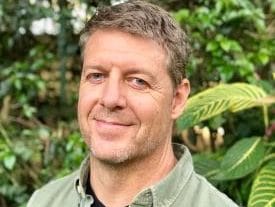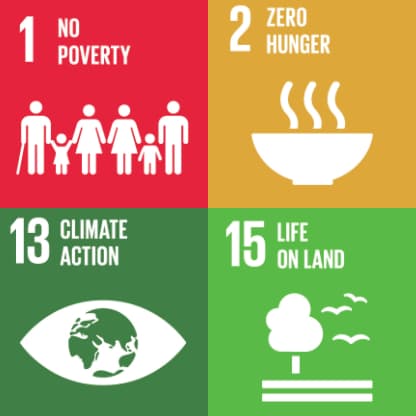Indigenous practices meet mobile technology
Chris Bessenecker, Co-Founder of AfriScout
- A quarter of a billion pastoralists (nomadic and semi-nomadic livestock herders) steward Africa's drylands - an area that spans 42% of the continent’s landmass. Seventy percent of them live on less than $3 USD a day and are considered some of the most remote and most vulnerable populations on the planet. They lose a third of their herds each year due to an inability to find adequate pasture or water – a problem that has only been exacerbated by climate change.
- Pastoralists hold the key to regenerating Africa's severely degraded drylands through the practice of rotational grazing. Rotational grazing helps to prevent overgrazing, restore biodiversity, and regenerate pasture. Once regenerated, these landscapes become huge carbon sinks, capable of sequestering millions of tonnes of carbon every year and mitigating the worst impacts of climate change.
- A significant barrier to improved rotational grazing has been the lack of timely, contextualized, and relevant information for better decision making. AfriScout is a digital service that is providing pastoralists with near real-time, visual data on rangeland conditions using satellite imagery and mobile technology. It also giving pastoralists a powerful platform for generational traditions like collaboration and communal risk-management.
- AfriScout was created by Global Visionaries Chris Bessenecker and Jennifer Waugaman who work for the non-profit development organization, Global Communities. It is the only grazing management service designed for and with pastoralists, and has leveraged their local insights, cultural practices, languages and contextual knowledge of grazing areas.
- Over the last 4 years, the application has been downloaded by more than 21,000 pastoralists across east Africa, and regularly shared among 120,000 additional pastoral households. Studies have shown that the maps have improved decision-making, reduced livestock deaths, and improved capacity to better manage pasture across the 50 million hectares of mapped rangelands.
- Chris Bessenecker started his vocation as a young Peace Corps volunteer supporting poor rural communities in the mountains of Honduras. His careers have since taken him to all corners of the globe to work with some of the world's most vulnerable populations. Throughout this time, he has recognized that the best solutions come first from listening, observing, and valuing the insights the communities bring and co-creating new solutions with them.
- AfriScout has garnered support from Google, USAID, UBS and others. It has also received significant media attention from outlets like Reuters, Bloomberg, and Huffington Post. It has been featured on Voice of America and was the lead segment on Al Jazeera’s award-winning Earthrise series AfriScout was a Classy Award winner for innovative, ground-breaking social impact programs, a Social Tech Guide Nominee Trust 100, and one of Ventures Africa’s “10 African Tech for Good Startups to Watch in 2017”. It was one of five finalist for the P3 Impact Award finalist (Public-Private Partnership), where Chris Bessenecker presented on the main stage at the Concordia Summit early in its development.
Here are the sustainable development goals AfriScout directly contributes to…
Here are the sustainable development goals AfriScout directly contributes to…
Livestock is the principle livelihood and main source of income for pastoralists. Livestock sales contribute 60-85% of total pastoral household income in Africa through barter or cash. AfriScout maps have had a significant attributable benefit by improving herd outcomes (i.e., reduced death, improved body condition) that has directly improved their wealth and income.
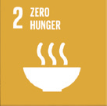
Both in terms of income to purchase food (65% of rural household expenditures in Kenya for example are dedicated to food purchases) and the caloric and micronutrient intake from the animals themselves (in Turkana for example, consumption of own livestock produce is meeting up to 40% of the household's energy needs), livestock wellbeing is critical to reducing hunger among pastoral populations.
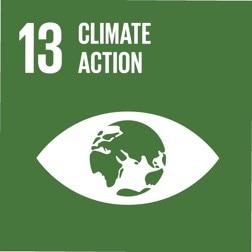
Because grasslands hold much of the earths carbon stocks, improving degraded grasslands holds huge promise for combatting climate change. By regenerating pastures we can reverse the carbon flows on a massive scale. Unlike ranchers, Pastoralists operate over very large tracts of land. They believe that Afriscout can directly assist them in becoming better “grass farmers” and heal the land.
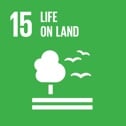
AfriScout is designed to reduce overgrazing and improved pasture management. In doing so, it is helping to protect, restore and promote sustainable use of terrestrial ecosystems, combat desertification, and halt and reverse land degradation and halt biodiversity loss.
Other Global Visionaries you might find interesting:
Other Global Visionaries you might find interesting:
Or you can view and select from all of our Global Visionaries

